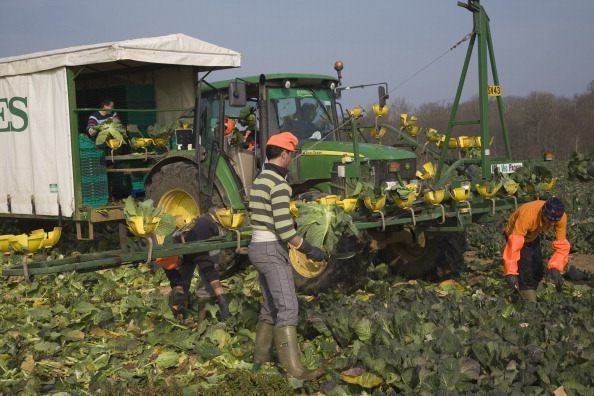Migrant workers living and working in Europe sent home $109 billion last year, with $17.1 billion (£10.9 billion) flowing out of Britain alone, a new report has found.
The amount sent by migrant workers out of Britain roughly equals the total spend by Britain on foreign aid each year, and is far more targetted in terms of poverty relief, once again raising questions over the government’s ongoing commitment to foreign aid spending, as well as figures quoted by pro-immigration activists as to the amount of money contributed to Britain’s GDP by foreign workers.
According to research by the International Fund for Agricultural Development (IFAD), Britain was second only to the Russian Federation in terms of remittances last year, as migrant workers in Russia sent $20.6 billion (£13.2 billion) to eight neighbouring countries in Central Asia and the Caucasus, and to southeastern Europe and the Near East.
The next four countries on the list were Germany ($14 billion), France ($10.5 billion), Italy ($10.4 billion) and Spain ($9.6 billion).
One third of the total flow from European countries stayed in Europe as 19 European countries, including 10 EU member states, received between them $36.5 billion. Some European countries, particularly those with a predominantly agricultural economy, rely heavily on the payments – in Moldova, for example, remittances from migrant workers make up 22 per cent their total GDP.
A further $34.9 billion went to Asia and the Pacific, $23.1 billion to Africa, $8.7 billion to the Near East and the Caucasus, and Latin America and the Caribbean received $6.2 billion.
According to the report, “remittance flows of US$17.1 billion from the United Kingdom are mainly sent to former colonies throughout the world, including Bangladesh, India, Kenya, Nigeria, Pakistan and Sri Lanka, as well as to China, Lithuania, the Philippines and Poland.”
Overall, central Asia and northern Africa are most reliant on flows from Europe, most of which comes from the Russian Federation, and France with it’s links to former African colonies in the north of the continent.
Much has been made by the Prime Minister David Cameron of Britain’s commitment to spending 0.7 percent of GDP on aid to foreign nations. Cameron ordered the figure to be ring-fenced in the latest round of austerity cuts, and repeatedly attempted in the last parliament to make it legally binding in the face of back-bench opposition.
But remittances by migrant workers working in Britain totals roughly the same amount in monetary terms – both are close to the £11 billion a year mark. As the money sent by workers is not only typically spent on necessities such as food, clothing, shelter, medicine and education, but also targetted at helping poor and impoverished relatives, questions have been raised as to whether it negates the requirement for a foreign aid budget which is open to corruption.
Philip Booth of the Institute for Economic Affairs told Breitbart London: “Remittances by migrants to their families from countries such as the UK and the US are so much more effective than foreign aid in raising the income of poor people.
“Remittances provide an important form of insurance and risk diversification so that people in poor countries can be assisted by their relatives in richer countries if they fall on times of hardship.”
Pedro de Vasconcelos, head of the IFAD remittances programme, told The Local: “Remittance payments can make up 50 percent of a family’s income – at the least. They need this money in order to sustain the family, send kids to school, have shelter and food. And hopefully have some to save and invest.”

COMMENTS
Please let us know if you're having issues with commenting.